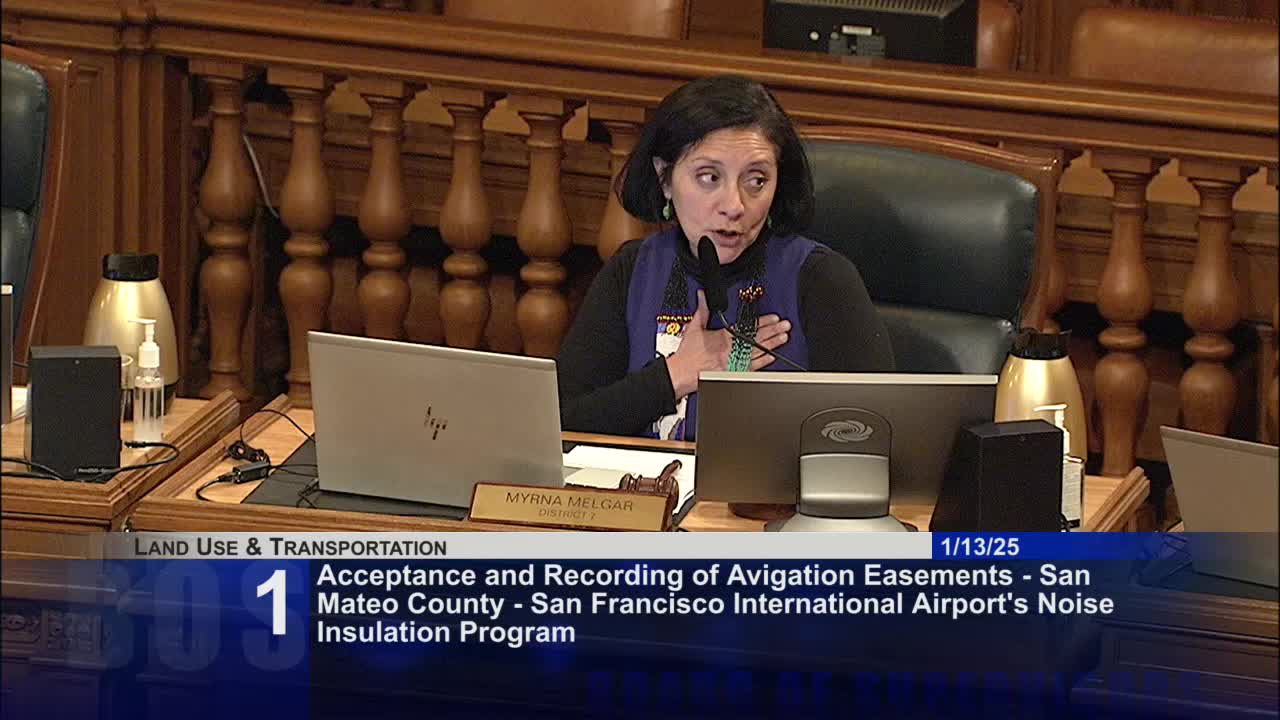Committee advances acceptance of Sunnydale HOPE SF Phase 2 public infrastructure
Get AI-powered insights, summaries, and transcripts
Subscribe
Summary
The committee voted 3‑0 to recommend that the Board accept public infrastructure improvements for Sunnydale HOPE SF Phase 2, including new streets, utilities and open space created as part of the HOPE SF redevelopment; the work supports new affordable and market‑rate housing and community facilities.
The Land Use and Transportation Committee voted 3‑0 on Jan. 13, 2025, to recommend that the Board of Supervisors accept irrevocable offers of public infrastructure tied to Phase 2 of the Sunnydale HOPE SF redevelopment.
Jason Lou, policy director for community development with the HOPE SF initiative at the Mayor’s Office of Housing and Community Development (MOHCD), and Ryan Van Zylen, senior project manager, described the infrastructure completed in the northeast corner of the Sunnydale site. The ordinance before the committee would accept public improvements — including new streets, sidewalks, curb ramps, sewer and water lines, street lights, trees and bike racks — and designate the infrastructure for city maintenance and liability, subject to the limitations specified in the ordinance text.
Lou described Sunnydale as one of four HOPE SF sites created to replace and expand aging public housing and associated infrastructure. He said the larger Sunnydale redevelopment will result in 1,770 total housing units when finished: 775 replacement units for former public housing residents, roughly 200 additional affordable units, and nearly 700 market‑rate units. Staff said the latest infrastructure phase was completed in mid‑2024 and facilitated three new buildings: a community center and two new 100% affordable housing buildings contributing about 170 new units, 127 of which are replacement units for former public housing residents.
The broader site includes a community center (with a childcare facility and Boys & Girls Club), a wellness center operated by the Department of Public Health, a neighborhood resource center and nine community‑serving retail spaces, staff said. Jason Lou said the HOPE SF initiative is a long‑term city commitment to address disinvestment in historically neglected public housing sites.
There were no public speakers on the item. Supervisor Jackie Fielder moved to send the ordinance to the full Board with a positive recommendation; the committee recorded three ayes. Speakers present from project partners included representatives from Related California, Mercy Housing, San Francisco Public Works, and the Office of Economic and Workforce Development who were available to answer technical questions.
If accepted by the Board, the city would assume maintenance responsibility for the dedicated public improvements and establish official street grades and right‑of‑way widths as described in the ordinance.
